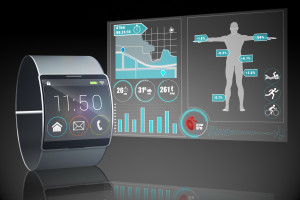 FLASS does not mean to be misleading or flippant with this headline.
FLASS does not mean to be misleading or flippant with this headline.
However, it is true that a recent Temple University study utilized a “digital health application” that allowed COPD patients to report their symptoms in time for early treatment.
Florida Lung, Asthma and Sleep Specialists applaud the Temple University School of Medicine, and Gerard J. Criner, MD, FACP, FACCP, Founding Chair of the new Department of Thoracic Medicine and Surgery, for their work with a study involving a digital health application for COPD patients.
COPD — A Thumbnail Review
According to experts, “COPD is a serious, progressive lung disease that can make it difficult to breathe and get enough oxygen into the body. It can make simple activities like walking up the stairs or running daily errands challenging.”
Research at the American Lung Association presents a picture of the signs and symptoms of COPD. We know we have published these symptoms previously, but we invite you to take a serious look at the list below before continuing today’s story about the research concerning the Temple University COPD digital application.
Major COPD symptoms:
- “Chronic cough

- Shortness of breath while doing everyday activities
- Frequent respiratory infections
- Blueness of the lips or fingernail beds (cyanosis)
- Bluish tint of skin or mucus caused by lack of oxygen.
- Fatigue
- Producing a lot of mucus (also called phlegm or (sputum) Mucus coughed up from the lungs.
- Wheezing.”
COPD Patients and A Better Life
Given the above list of symptoms, you might guess that enjoying life while coping with this disease relies a great deal on the patient’s ability to monitor their symptoms.
With the Temple University AP, patients in the study were empowered to report their COPD daily symptoms, “and received same-day treatment recommendations from their health care provider.” Needless to say the outcome was that they, “experienced fewer and less severe COPD exacerbation symptoms…”
As you might imagine, due to the patient’s use of the AP, and timely treatment of these symptoms prevented escalation of them and “led to an improvement in daily symptom control, lung function, and activity status.”
FLASS Sees Promising Results In The COPD Study
“The digital health application allows COPD patients to report their respiratory symptoms and peak expiratory flow measurements, which were assessed by a computer algorithm and compared with initial values to achieve a symptom deviation score.”
Symptom deviation score is “a measure of how serious the symptoms are relative to the patients’ baseline metrics. Scores in excess of a predetermined threshold were reviewed by a nurse and referred to a physician who prescribed treatment.”
To put it simply, the application allowed health care providers to initiate treatments that were optimized for individual patients’ symptoms on the same day that COPD symptoms worsened.
The AP was individualized to each patient. With settings and an algorithm in use, the COPD patient could access a trained nurse, who could could analyze the readings according to the personal threshold established by the patient.
threshold established by the patient.
The nurse could then refer the patient to a doctor who provided almost immediate, same day treatment.
Dr. Criner stated, “Previous studies at other sites have questioned the efficacy of various telemedicine solutions in COPD patients, but those studies have not used a solution that enables same-day treatment in response to worsening patient symptoms.”
Although this particular experiment covered two years, The doctor added, “We have been studying digital health solutions for COPD symptom management for over a decade and are pleased that the improvements we have seen in our patients in response to early identification and intervention has been documented in this clinical study.”
As with all studies of this type, the researchers recommended that more study be done to solidify the positive aspects of the experiment.
Here in Orlando, the Florida Lung, Asthma and Sleep Specialists say “Bravo!” to the scientists who are matching digital discoveries with patient-engaging care techniques, to create better lives for COPD patients. Such researchers are pioneering digital tools that interface with patient’s needs.
For more information on Temple’s other work with COPD research studies, visit this reliable online resource.

